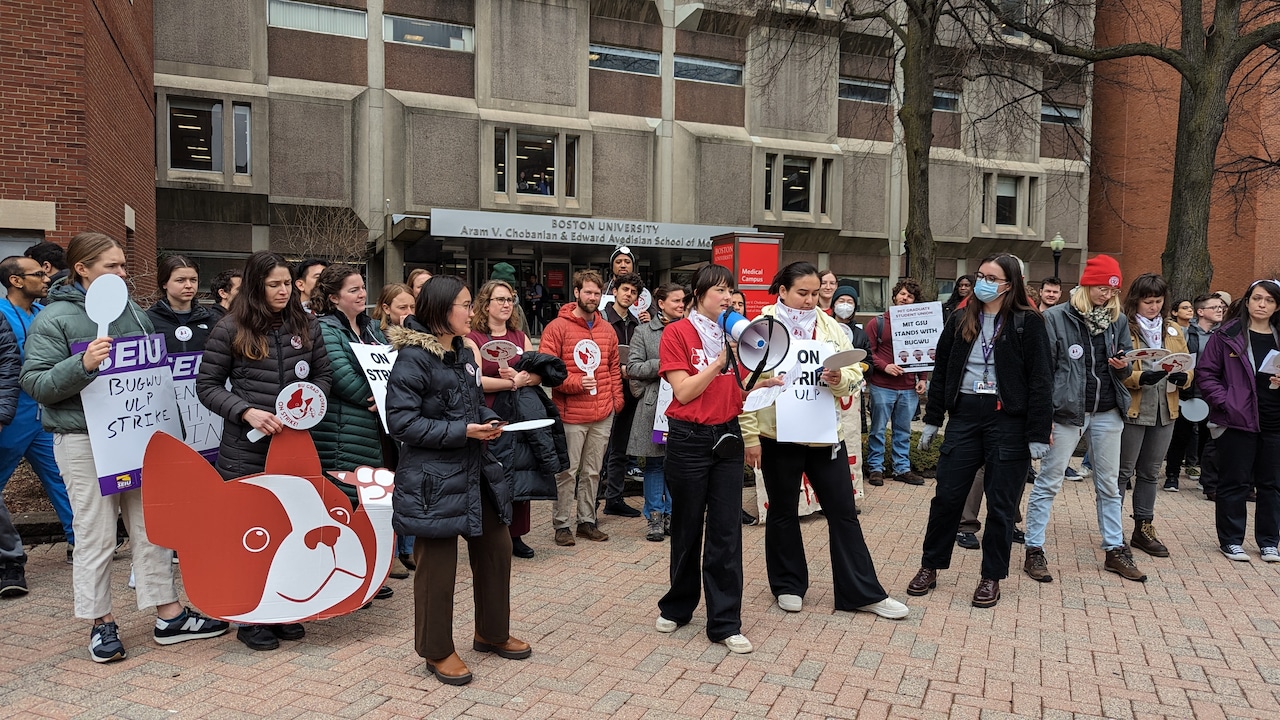
The union representing graduate workers at Boston University voted to ratify a contract with the university on Wednesday, drawing to a close a nearly seven-month-long strike.
Graduate workers, who are represented by SEIU Local 509, launched the strike in March after eight months of negotiations with the university. On Wednesday, the union ratified the contract agreement by an 87% margin, according to a news release provided by the union. The contract will be in effect until August 2027.
At nearly seven months, it was the longest union-authorized work stoppage involving U.S. university student employees in roughly a decade, according to the release.
The contract includes increased wages for workers, including a roughly 70% raise for the lowest-paid PhD workers. It also boosts the minimum hourly wage to $20/hour and provides an annual adjustment of 3% each year.
The deal also includes victories for the union in areas like health care coverage, childcare subsidies and parental leave. The deal also establishes a $200,000 emergency fund, according to the release.
A spokesman for BU could not immediately be reached for comment Thursday morning.
Freddy Reiber, a graduate worker in the Data Science department, said while the contract was a victory for the union, it was not the end of the fight.
“We’ve got a solid foundation and are already thinking about the next contract so that we can help create a more equitable BU,” Reiber said in a statement.
Another graduate worker, Eric Munson, a parent, said while the strike was challenging, it was the only way the union could bring BU to “make any investment in the 3,000 graduate workers who maintain BU’s world-class reputation.”
“My co-workers and I understood that taking collective action was our only option to ensure that future graduate workers would have more support for themselves and their families while pursuing their academic careers,” Munson said in a statement.





